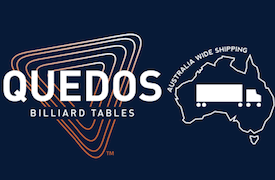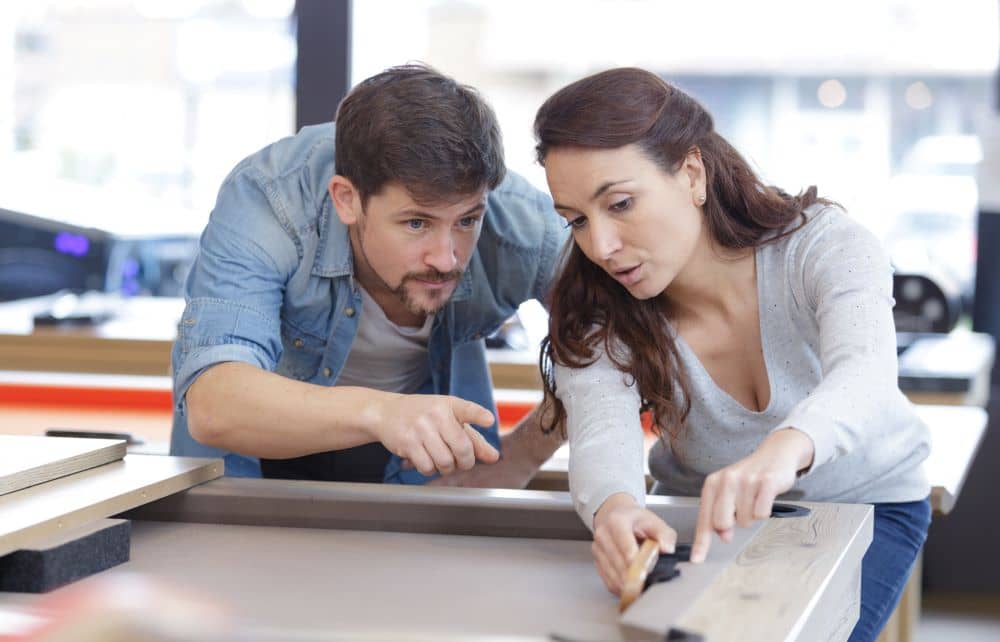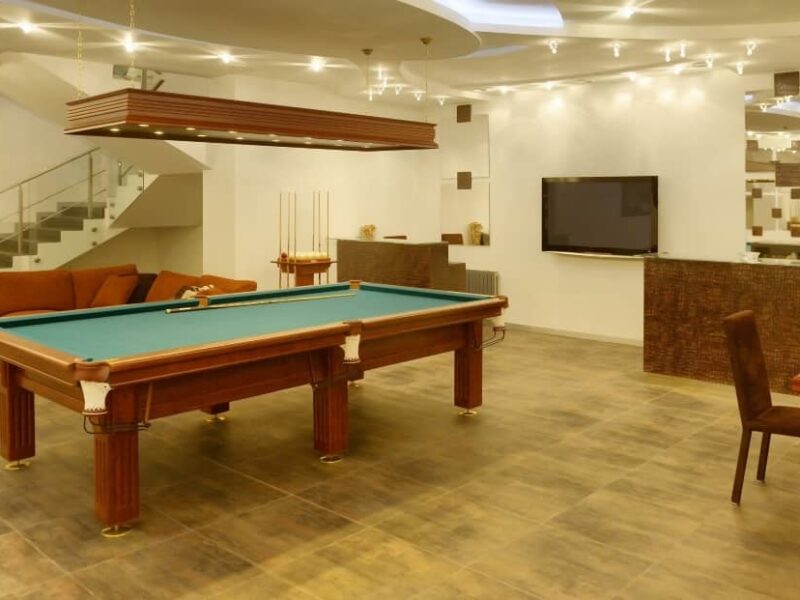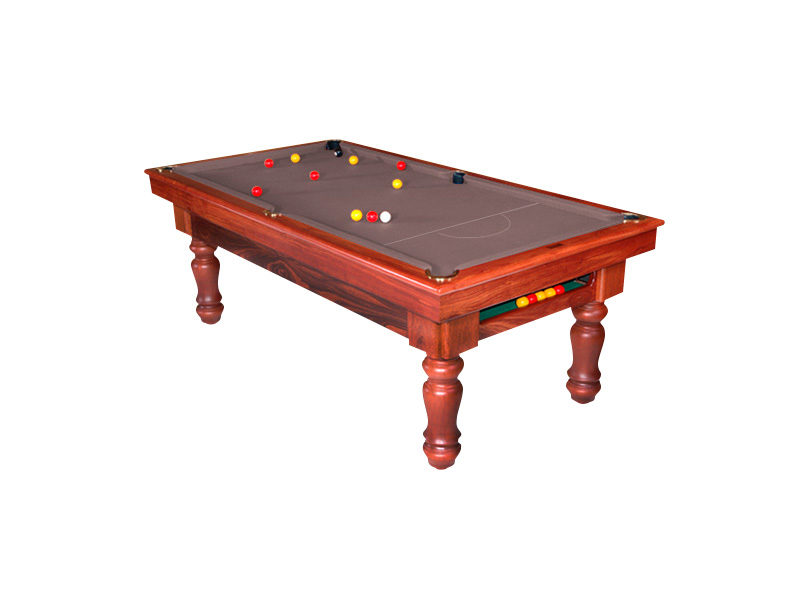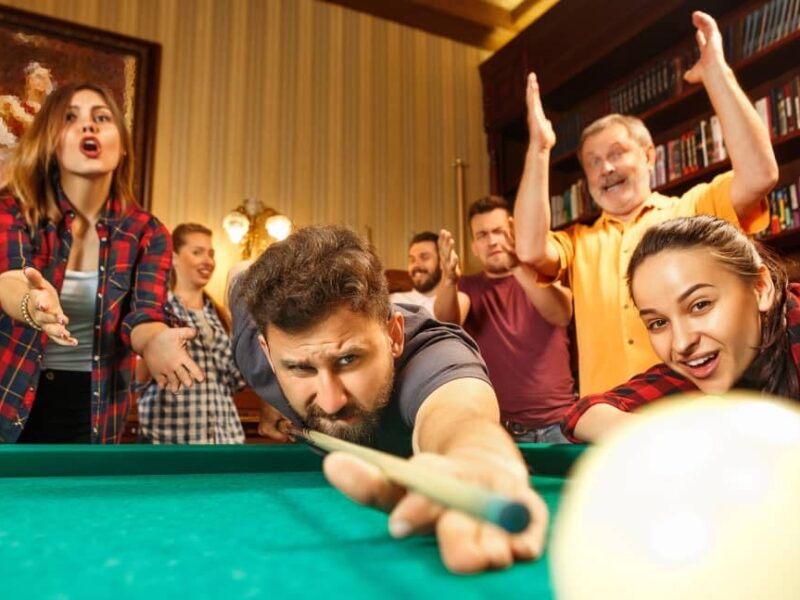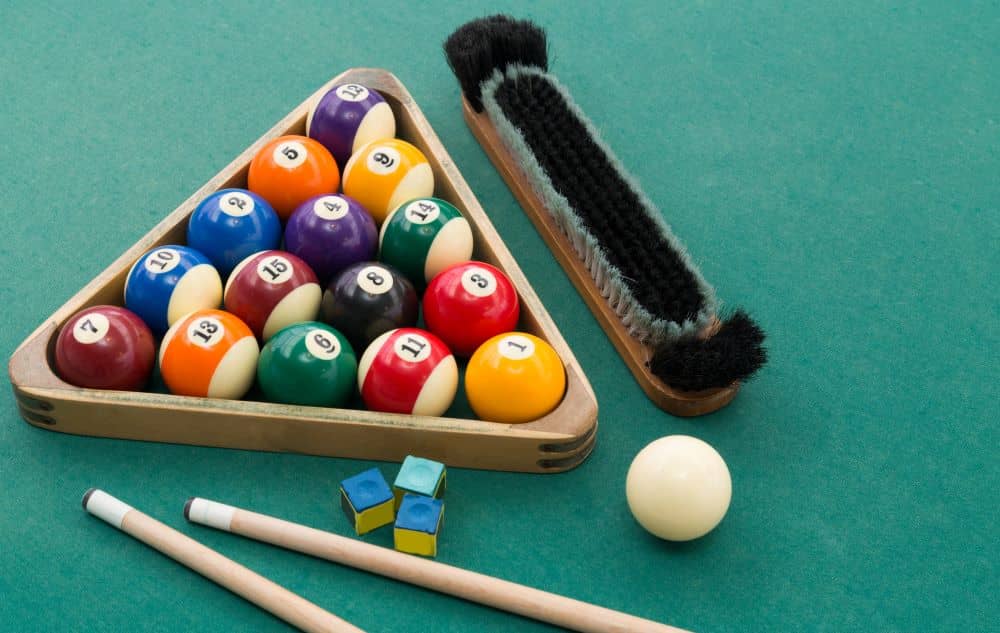
Tips for Looking After Your Pool and Snooker Table
Your pool or snooker table is a hefty investment; it makes sense that you take good care of it. And like your other serious investments, such as your house, your gaming table comes with some responsibilities. To keep it around for the years to come, you should clean and maintain your pool and snooker table properly. The good news is that it’s not that complicated. However, there are specific tasks that you need to do regularly to ensure it stays in top condition.
In this article, you will learn the correct way on how to look after your pool and snooker table, including some useful tips for felt cleaning and table frame care.
But first, how long can you expect your pool or snooker table to last? The answer is always dependent on its quality and how you maintain it. A well-made slate and hardwood pool table can last for 20 years or even more – and that’s with regular use. The secret is in routine care and maintenance. If your table has metal frames, it can last just as long. But once again, it all depends on the quality, materials used, and how you take care of it.
Pool tables typically come with a manufacturer’s warranty. However, be sure that you read the terms and conditions carefully. Most of these warranties only apply to the playing surface, although some do cover the entire table.
If you take proper measures to clean, polish, and care for your pool or snooker table, it can last a lifetime.
- The Right Way to Play
- Felt Cleaning
- Table Frame Care
- Balls and Accessories Maintenance
- Pockets
- More Tips for Keeping the Pool Table Clean and in Good Condition
The Right Way to Play
It all begins with what you do to the table regularly. There’s always a proper way of playing, and knowing how to do it correctly will surely add years to the pool table’s life.
Pool tables are a source of entertainment. They can be the centre of the party where guests gather around to play – and sometimes sit on them. When inviting people over, everyone must understand the pool table care rules.
The simplest way to care for your table is to remind the guests to be considerate of the table. It’s designed for playing pool and nothing else. Even simple things like playing cards on the surface should not be allowed unless designed as a multipurpose table.
Here are other reminders for the players:
- When chalking the cue tip, make sure it is done away from the table. If possible, limit the number of times the chalk is used. Chalkdust can penetrate the cloth and damage it. If you notice that the balls don’t glide as well as before, the chalk may be the culprit.
- When playing, remove any jewellery, which can scratch the cloth.
- Gentle playing is vital. Some players tend to dig the cue into the cloth, which can easily damage the felt.
If you see a minor scratch or tear, it is best to have it repaired quickly; otherwise, it can turn into a larger hole, which will require you to replace it.
Felt Cleaning
Out of all the pool table parts, the felt is the most abused since it is the playing surface. That’s why careful attention should be given to it even if the material is guaranteed to be sturdy. Again, tell your guests that they should respect the felt and make sure to avoid damaging it.
As the owner, you are responsible for providing regular cleaning. You will need to invest in good quality pool table brushes, which you should always have when playing. However, remember that these brushes should never be used for anything other than to clean the table. Brushes are generally used to remove chalk dust to ensure smooth gameplay.
Here are some tips for cleaning the felt:
- If you have a brush, use it to remove chalk, pushing it gently to a pocket in one direction only. Avoid moving the chalk farther down the table unless you are confident it will not get into the felt.
- If there are smaller particles that are difficult to remove from the pool table, the best way to deal with them is to vacuum the felt. Make sure you give it extra care, using only low suction power. It’s also essential that you choose an attachment designed for upholstery, which will help in picking up dust and other debris.
- Never rub the chalk or any debris into the felt.
If you play often, you should add vacuuming to your regular tasks. It will help keep the felt in good condition, but as always, be very careful. Don’t vacuum if you’re in a hurry, as it might cause you to be a little harsh just to speed things up.
Table Frame Care
After the felt, the table frame is the next on your list. It should be clean, providing extra care for its materials, such as leather and hardwood.
Here are the steps to follow when cleaning the frame:
- You will need a soft brush to remove dust and dirt on the frame. Go over the legs, rail, cabinet, and flat surfaces, ensuring that they are all clean.
- Follow the brushing with a soft cloth for polishing the surfaces mentioned.
- You can apply a wood cleaner afterwards. Refer to the manual or care instructions of the pool or snooker table to figure out the suitable cleaning agent to use. These products help remove marks and scuffs that do not go away with cloth polishing alone.
- For pool tables that have wood or leather sections, make sure that they are conditioned further. Wood requires a specialised furniture polish to keep it shiny and to look new. You can apply a small amount of the polish to a cloth and rub it on the wood surface gently.
- Meanwhile, if your pool has leather parts, such as cushions or pockets, use an oil-based cleanser. This product will help condition it, locking the suppleness and preventing dryness and cracking.
Perform the steps above regularly to help clean and keep it polished.
Balls and Accessories Maintenance
Remember that anything you place on the table can damage it. That’s why part of caring for your pool or snooker table is to ensure that all the balls and accessories are clean and well maintained. Here are a few tips that can help:
- Pool Balls: Cleaning your pool table will not do any good if your pool balls are dirty. Before you store the balls, make sure that you wipe them down after every game. If you’re more comfortable with doing this task before playing, you can choose to do that, too. These balls pick up dirt and debris, spreading them around the table. Some of them may be too small for you to notice, but they can still do damage, especially on the felt. You don’t need special cleaning tools and products here. You can simply use a microfibre cloth to remove the residue on each ball.
- Pool Cues: Once again, take some time to wipe down the cue stick after every game. Doing so will help keep it in good condition while also preventing damage to the table. You can buy a wood cleaner to polish the stick every few months. If the cue tip is damaged, make sure that it is replaced or fixed quickly.
Pockets
Pool tables can have varying pockets, but all of them require some cleaning, just like the rest of the table. If the pockets are made of leather, condition them, as well. Use a vacuum to clean the insides of the pockets to remove dust. Finally, wipe them down with a clean cloth.
More Tips for Keeping the Pool Table Clean and in Good Condition
Getting your pool table primed and ready for an exciting game is part of owning a pool table. Here are additional tips that will help care for your favourite piece of furniture:
- The location of your pool table has a significant role in its longevity. Keep it away from the sun, ensuring that it does not receive direct sunlight. Humidity levels should be around 40 to 60 per cent only to maintain the hardwood material.
- Using good quality balls is important. Some pool tables get burn spots or those small white marks due to ball friction. It’s inevitable if you use balls that are not made with phenolic resin. Unfortunately, these marks can create holes in the cloth, which is why you should stick to phenolic resin balls to reduce the damage.
- Never lean on the table. Many players have this habit, and it is not good for the pool table, no matter how sturdy you think it is.
- Don’t stroke the cue against the table rails, too. It can lead to more damage that can be difficult to fix.
- Keep the table on a level surface to minimise movement as much as you can. If the table moves, it becomes susceptible to damage.
- Tell your guests never to sit, push, or lean on the table. The force applied, when continuous, can lead to a loose pin, which holds the housing. It is one of the biggest reasons why pool tables begin to wobble.
- Keep the pool table covered, especially when not in use. It can also prevent other people from putting anything on the surface, such as drinks and purses.
Finally, you should perform simple maintenance now and then. You can do this on your own or, better, hire a professional to do the checks for you. Some areas to focus on are surface cracks, slate position, and felt condition. You can use a machinist’s device to determine if the pool table is level. The slate should remain in its original place and that the felt has no apparent holes with no loose sections. Felt is replaced every five years or so for casual players. But if you play daily, you may have to replace the felt every two to three years.
